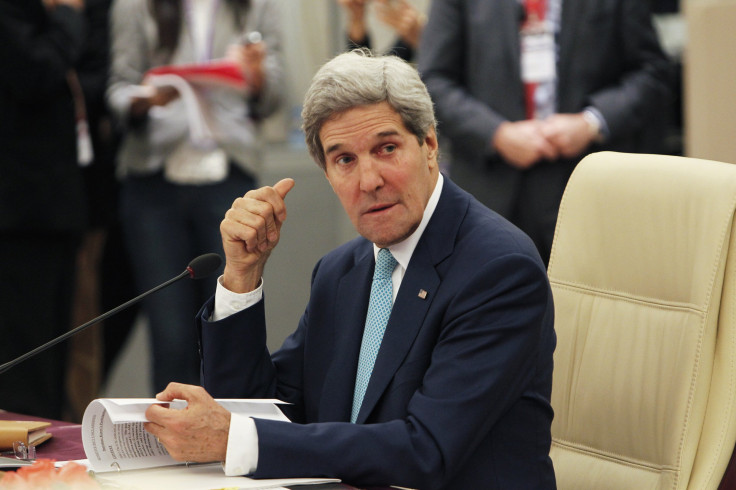US Proposal To Smooth Tensions In South China Sea Overlooked At ASEAN Regional Forum 2014

A U.S. proposal to smooth disputes in the South China Sea was brushed aside by China and some Southeast Asian nations Saturday, highlighting tensions between the two superpowers over U.S. influence in the region.
U.S. Secretary of State John Kerry presented the plan at the Association of Southeast Asian Nations, or ASEAN, regional forum in Naypyidaw, Myanmar, which was also attended by foreign ministers and diplomats from China, Russia, Japan and the European Union, among others.
Under Kerry’s proposal, China and ASEAN countries that have competing claims to territory in the South China Sea -- namely Vietnam and the Philippines -- would voluntarily stop aggressive actions related to the turf war, media reports said.
In the latest provocation in May, China’s state-owned oil company deployed an offshore rig in an area Vietnam claimed was in its exclusive economic zone. The action set off deadly anti-Chinese riots in Vietnam and sparked a major diplomatic row. China National Petroleum Corp., or CNPC, removed the rig in mid-July after completing its operations.
“The United States and ASEAN have a common responsibility to ensure the maritime security of critical sea, land and ports,” Kerry said in opening comments on Saturday. “We need to work together to manage tensions in the South China Sea and to manage them peacefully, and also to manage them on the basis of international law.”
The 10-member ASEAN group has generally supported U.S. suggestions on easing tensions, such as a mandatory code of conduct that establishes guidelines for responding to conflicting claims. But China has pushed back against U.S. involvement and progress on the guidelines has been slow, the Associated Press noted.
ASEAN Secretary-General Le Luong Minh said Saturday ASEAN ministers did not discuss the U.S. proposal at their meeting because the group already has a plan to restrict potentially provocative actions such as land reclamation and building on disputed lands, Reuters reported.
"It is up to ASEAN to encourage China to achieve a serious and effective implementation of this commitment, rather than ASEAN asking whether it should support or not support the [U.S.] proposal," he said.
China dismissed Kerry’s call for a voluntary moratorium and accused the United States of giving undue credence to complaints by Vietnam and Philippines.
"Currently the situation in the South China Sea is stable on the whole. There has not been any problem regarding navigation in the South China Sea," Chinese Foreign Minister Wang Yi told reporters.
© Copyright IBTimes 2025. All rights reserved.





















